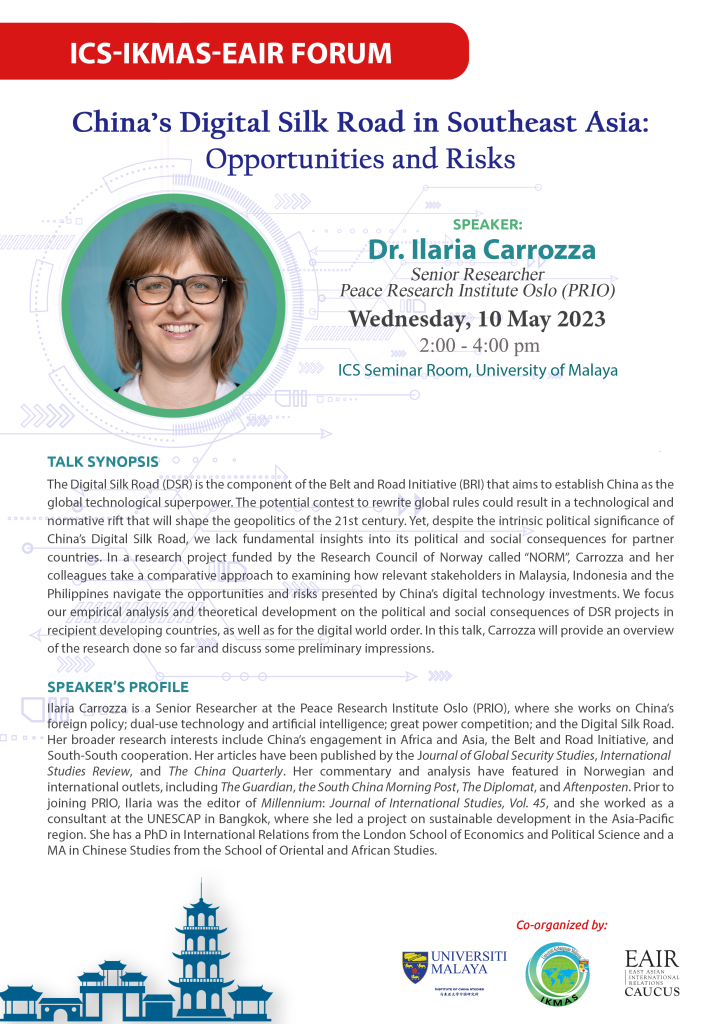
Talk Synopsis
The Digital Silk Road (DSR) is the component of the Belt and Road Initiative (BRI) that aims to establish China as the global technological superpower. The potential contest to rewrite global rules could result in a technological and normative rift that will shape the geopolitics of the 21st century. Yet, despite the intrinsic political significance of China’s Digital Silk Road, we lack fundamental insights into its political and social consequences for partner countries. In a research project funded by the Research Council of Norway called “NORM”, Carrozza and her colleagues take a comparative approach to examining how relevant stakeholders in Malaysia, Indonesia and the Philippines navigate the opportunities and risks presented by China’s digital technology investments. We focus our empirical analysis and theoretical development on the political and social consequences of DSR projects in recipient developing countries, as well as for the digital world order. In this talk, Carrozza will provide an overview of the research done so far and discuss some preliminary impressions.
Speaker’s Profile
Ilaria Carrozza is a Senior Researcher at the Peace Research Institute Oslo (PRIO), where she works on China’s foreign policy; dual-use technology and artificial intelligence; great power competition; and the Digital Silk Road. Her broader research interests include China’s engagement in Africa and Asia, the Belt and Road Initiative, and South-South cooperation. Her articles have been published by the Journal of Global Security Studies, International Studies Review, and The China Quarterly. Her commentary and analysis have featured in Norwegian and international outlets, including The Guardian, the South China Morning Post, The Diplomat, and Aftenposten. Prior to joining PRIO, Ilaria was the editor of Millennium: Journal of International Studies, Vol. 45, and she worked as a consultant at the UNESCAP in Bangkok, where she led a project on sustainable development in the Asia-Pacific region. She has a PhD in International Relations from the London School of Economics and Political Science and a MA in Chinese Studies from the School of Oriental and African Studies.
